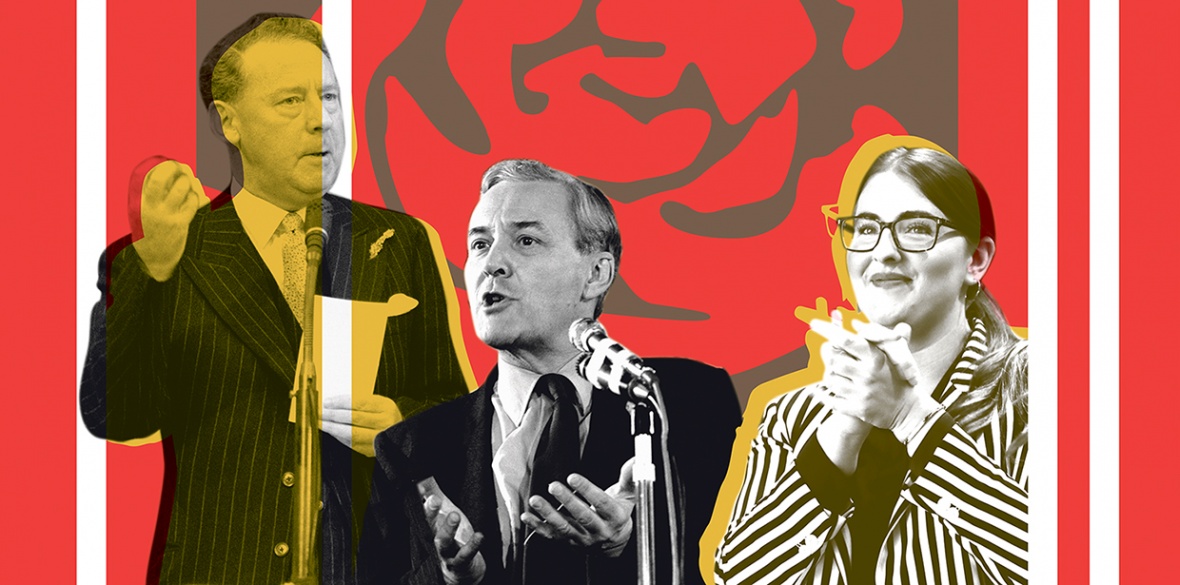This is the last article you can read this month
You can read more article this month
You can read more articles this month
Sorry your limit is up for this month
Reset on:
Please help support the Morning Star by subscribing here
THE late Ralph Miliband wrote one of the best books about the history of the Labour Party, Parliamentary Socialism: A Study in the Politics of Labour (Allen & Unwin, 1961). Albeit of course it doesn’t cover the last 60 years.
Miliband, the father of David and Ed, opens the book by making the statement that, as a democratic socialist party, Labour had always been among the most dogmatic — not about socialism but about the use of parliamentary as opposed to extra-parliamentary forms of struggle.
His view at that time was that Labour under Hugh Gaitskell was not a vehicle for socialist advance and the leadership of the rather more “left-wing” Harold Wilson did nothing to change his mind.
He did, however, keep the matter under review and sometimes returned to the subject, for example in the 1983 edition of the Socialist Register.
Here he saw the rise of a left around Tony Benn from the early 1980s as a sign that maybe Labour could be claimed for socialism. Significantly, perhaps, it appeared in the year that a young Jeremy Corbyn first became an MP.
Tom Watson, before he stepped down and out of Labour politics, described an effort to abolish his then deputy party leader position as going against the idea of Labour as a “broad church.”
Miliband wrote: “Pious references to the Labour Party being a ‘broad church’ which has always incorporated many different strands of thought fail to take account of a crucial fact, namely that the ‘broad church’ of Labour only functioned effectively in the past because one side — the right and centre — determined the nature of the services that were to be held, and excluded or threatened with exclusion any clergy too deviant in its dissent.”
Much more recently, however, The Guardian argued in an editorial on September 22 2019: “The Labour Party is nothing if not a broad church, encompassing different traditions working with — not against — each other … Over decades, Labour activists, interests and voters have broadly agreed on a common purpose — to elect Labour governments that can redress the imbalance of economic, social and political power in Britain. That broad-church approach has served Labour well and has served Britain well too.”
Socialists can certainly be active in the Labour Party, have been and remain so but managing to control it as an institution and grapple with its parliamentary focus is much harder.
Ralph Miliband never reached a definitive conclusion as to whether socialists could best organise effectively within the Labour Party or outside it, or perhaps both.
Laura Pidcock’s resignation from Labour’s NEC at the end of January on the grounds that it was no place for socialists shows it’s a question that remains relevant for the left.
There is, however, another broad church project, one long trumpeted by Tony Blair and clearly attractive to some around Keir Starmer.
This rolls history back to before the foundation of the Labour Representation Committee in 1900 which led to the creation of the Labour Party. It sees this as a mistake.
Rather what is needed is a progressive Liberal-Labour alliance, similar to that which existed in some areas in the final quarter of the 19th century.
This project needs to be contested by the left — first because it had and has no place for organised socialists but second because the practice of the Lib-Lab MPs in the early 20th century was very far from any meaning of progressive.
The key point, though, remains to organise to fight the impact of Tory rule in 2022. Debating the best vehicle for carrying that forward flows from that, rather than coming before it.
Keith Flett is a socialist historian.











